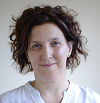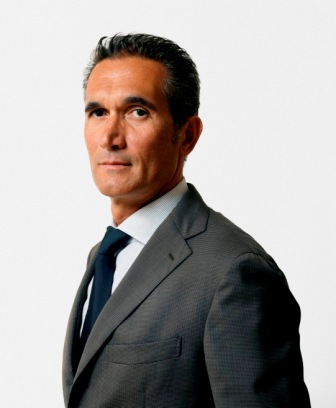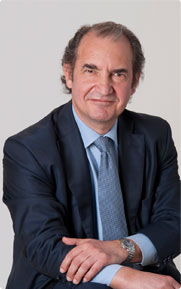Studying at the University of Verona
Here you can find information on the organisational aspects of the Programme, lecture timetables, learning activities and useful contact details for your time at the University, from enrolment to graduation.
Academic calendar
The academic calendar shows the deadlines and scheduled events that are relevant to students, teaching and technical-administrative staff of the University. Public holidays and University closures are also indicated. The academic year normally begins on 1 October each year and ends on 30 September of the following year.
Course calendar
The Academic Calendar sets out the degree programme lecture and exam timetables, as well as the relevant university closure dates..
| Period | From | To |
|---|---|---|
| primo semestre | Sep 23, 2013 | Jan 10, 2014 |
| secondo semestre | Feb 17, 2014 | May 30, 2014 |
| Session | From | To |
|---|---|---|
| Sessione Prove Parziali - Primo Semestre | Nov 11, 2013 | Nov 15, 2013 |
| Sessione Invernale Esami | Jan 13, 2014 | Feb 15, 2014 |
| Sessione Prove Parziali - Secondo semestre | Apr 14, 2014 | Apr 18, 2014 |
| Sessione Estiva esami | Jun 3, 2014 | Jul 12, 2014 |
| Sessione Autunnale Esami | Aug 25, 2014 | Sep 10, 2014 |
| Session | From | To |
|---|---|---|
| Sessione di Lauree - Novembre | Nov 7, 2013 | Nov 8, 2013 |
| Sessione di Lauree - Aprile - Verona | Apr 9, 2014 | Apr 10, 2014 |
| Sessione di Lauree - Settembre | Sep 11, 2014 | Sep 12, 2014 |
| Period | From | To |
|---|---|---|
| Vacanze Natalizie | Dec 23, 2013 | Jan 4, 2014 |
| Vacanze Estive | Aug 11, 2014 | Aug 23, 2014 |
Exam calendar
Exam dates and rounds are managed by the relevant Economics Teaching and Student Services Unit.
To view all the exam sessions available, please use the Exam dashboard on ESSE3.
If you forgot your login details or have problems logging in, please contact the relevant IT HelpDesk, or check the login details recovery web page.
Academic staff
 silvano.corbella@univr.it
silvano.corbella@univr.it
 tamara.fioroni@univr.it
tamara.fioroni@univr.it

Magazzini Laura
 laura.magazzini@univr.it
laura.magazzini@univr.it
 045 8028525
045 8028525
 martina.menon@univr.it
martina.menon@univr.it
Mussini Mauro
 mauro.mussini@univr.it
mauro.mussini@univr.it
 maurizio.pizzamiglio@univr.it
maurizio.pizzamiglio@univr.it
 fabio.sartori@univr.it
fabio.sartori@univr.it
Study Plan
The Study Plan includes all modules, teaching and learning activities that each student will need to undertake during their time at the University.
Please select your Study Plan based on your enrollment year.
1° Year
| Modules | Credits | TAF | SSD |
|---|
2° Year activated in the A.Y. 2014/2015
| Modules | Credits | TAF | SSD |
|---|
3° Year activated in the A.Y. 2015/2016
| Modules | Credits | TAF | SSD |
|---|
| Modules | Credits | TAF | SSD |
|---|
| Modules | Credits | TAF | SSD |
|---|
| Modules | Credits | TAF | SSD |
|---|
| Modules | Credits | TAF | SSD |
|---|
Legend | Type of training activity (TTA)
TAF (Type of Educational Activity) All courses and activities are classified into different types of educational activities, indicated by a letter.
Macroeconomics (2013/2014)
Teaching code
4S00242
Credits
9
Language
Italian
Location
VERONA
Scientific Disciplinary Sector (SSD)
SECS-P/01 - ECONOMICS
The teaching is organized as follows:
lezione
esercitazione
Learning outcomes
-- Introdution ––
Modern macroeconomics was born with J.M. Keynes in 1936. His book "The General Theory" recalls the title of Einstein's famous paper. Such a parallelism is not completely out of place. In fact, one could argue that macroeconomics is to economics what cosmology is to physics. It studies the aggregate phenomena of an economic system. It does not inquiry on the infinitely small, such as a single firm or the behaviour of an individual (the field of microeconomics), but it deals with the overall forces of an economic system. Like cosmology, macroeconomics too asks ultimate questions on the “massimi sistemi”. In short, what is made the wealth of a nation, and how much is it, from where does such wealth come from, and where (i.e. to whom) does it end. It is not necessary to be a cosmologist to know that “il sole e le altre stelle” do exist. Equally, one can speak about GDP, aggregate consumption, industrial investment, inflation without knowing the subject matter involved in these phenomena. However, common sense apart, one cannot answer how the PIL is formed, who has produced it, how much it has been consumed or invested, and the effects these decisions have generated, without some training in macroeconomics.
-- First aim––
The first aim of the lectures consists to providing such basic training. The level of exposition will be introductory, but not superficial. Some basic mathematical knowledge is required (mainly on linear functions), since there will be an extensive use of graphics and equations. Three markets, that make up a typical economic system, will be examined in succession: (1) the good market, (2) the financial and monetary market, (3) the labour market. The laws of these three markets will be carefully analyzed, as well as their interactions in determining the economic equilibrium (or disequilibrium) of an economic system.
-- Second aim––
But macroeconomics is not cosmology. If cosmology cannot usually change the phenomena it studies, this is not the case of macroeconomics. Similarly to what happens to other social sciences, macroeconomists aim at knowing the world not just for the sake of knowledge, but also for the sake of improving the world. Coherently, the second aim of these lectures will be to point out the role played by economic policy (in the three markets) in promoting – or at least in our difficult times, in preserving) the level of wealth achieved by the developed world.
Program
Lectures will be both on theory and on practice. Students will be asked to take weekly exercises and test, so to verify their progress to the preparation for the final exam.
The main topics that will be addressed are the following:
1. Macroeconomics: History of Economic Thought and Economic History
2. National Accounts and further Empirical Evidence
3. The market of goods
4. The financial and monetary market
5. The IS-LM model
6. The labour market
7. Unemployment and inflation: the Phillips curve
8. The AD-AS equilibrium model
9. Economic growth (including Harrod-Domar model)
10. The accumulation of capital and the technical progress
11. The role of expectations and inflationary effects
12. The open economy
13. Macroeconomics and Economic Policy
Textbook basic References (see below in the other box the detailed bibliography): Blanchard et al. (2011). It is ok also the previous edition Blanchard (2009). Manual of solutions: Findlay (2011), or Findlay (2009).
Bibliography
| Activity | Author | Title | Publishing house | Year | ISBN | Notes |
|---|---|---|---|---|---|---|
| lezione | Blanchard Olivier, Amighini Alessia, Giavazzi Francesco | Macroeconomia | Il Mulino | 2016 | 9788815149731 | Il libro di testo di Blanchard et al. 2011 è molto simile all'edizione 2009. La maggiore novità è l'inclusione di un nuovo capitolo sulla crisi, e una diversa collocazione di un capitolo sull'economia internazionale. Il resto è rimasto sostanzialmente lo stesso. |
| esercitazione | Findlay, David W. (a cura di Lucia Dalla Pellegrina) | Esercizi di Macroeconomia. Guida allo studio del testo di Olivier Blanchard, Alessia Amighini, Francesco Giavazzi | Il Mulino | 2017 | 9788815272003 | L'eserciziario di Findlay è associato al nuovo libro di testo Blanchard et al. 2011. Bisogna prestare attenzione di abbinare l'eserciziario al libro di testo in base alla data di pubblicazione. Pertanto l'utilizzo del Findlay 2011 va fatto in tandem con il Blanchard et al. 2011, mentre l'utilizzo del Findaly 2009 va fatto se si possiede l'edizione del Blanchard 2009. Attenzione: *non* utilizzare il criterio del colore per un eventuale acquisto. Il colore dell'eserciziario 2011 è uguale al colore del libro di testo 2009. |
Examination Methods
Mid-term exam: Written exam with multiple-choice and numerical test. Final exam: Written exam divided in two parts: a)Multiple-choice test (20 questions) b)Numerical exercises (4 exercises). The final exam covers the whole syllabus. Students that have passed the mid-term exam will be assessed as follows. The final mark of the written exam will be the sum of the weighted (35%) mark of the mid-term exam and the wighted (65%) mark of the final exam. Students may renounce the mid-term mark. In that case the assessment will be made only with the final exam. Oral exam for those that have passed the written exam with a mark of 17 or higher. a) Compulsory for those with a mark between 17 and 18 in the written exam. b) Optional for those with a mark of 18 or higher in the written exam. Students that have taken weekly monitored test and exercises can asked a bonus of a maximum of 10% of the mark of the written exam.
STUDENTS WITH 10CFU, 9CFU e 6CFU ENROLLED IN THE PREVIOUS YEARS
To be instructed which is the course and who is the Lecturer in your case, please see attached PDF file below under the item "Teaching Material".Teaching materials e documents
-

 CON QUALE DOCENTE: Per gli studenti iscritti negli anni 2009-'10 e precedenti
(it, 36 KB, 18/06/13)
CON QUALE DOCENTE: Per gli studenti iscritti negli anni 2009-'10 e precedenti
(it, 36 KB, 18/06/13)
Type D and Type F activities
Modules not yet included
Career prospects
Module/Programme news
News for students
There you will find information, resources and services useful during your time at the University (Student’s exam record, your study plan on ESSE3, Distance Learning courses, university email account, office forms, administrative procedures, etc.). You can log into MyUnivr with your GIA login details: only in this way will you be able to receive notification of all the notices from your teachers and your secretariat via email and soon also via the Univr app.
Graduation
List of theses and work experience proposals
| theses proposals | Research area |
|---|---|
| Tesi di laurea - Il credit scoring | Statistics - Foundational and philosophical topics |
| La performance delle imprese che adottano politiche di Corporate Social responsibility | Various topics |
| La previsione della qualita' dei vini: Il caso dell'Amarone | Various topics |
| Proposte di tesi | Various topics |
| Tesi in Macroeconomia | Various topics |
| tesi triennali | Various topics |
























